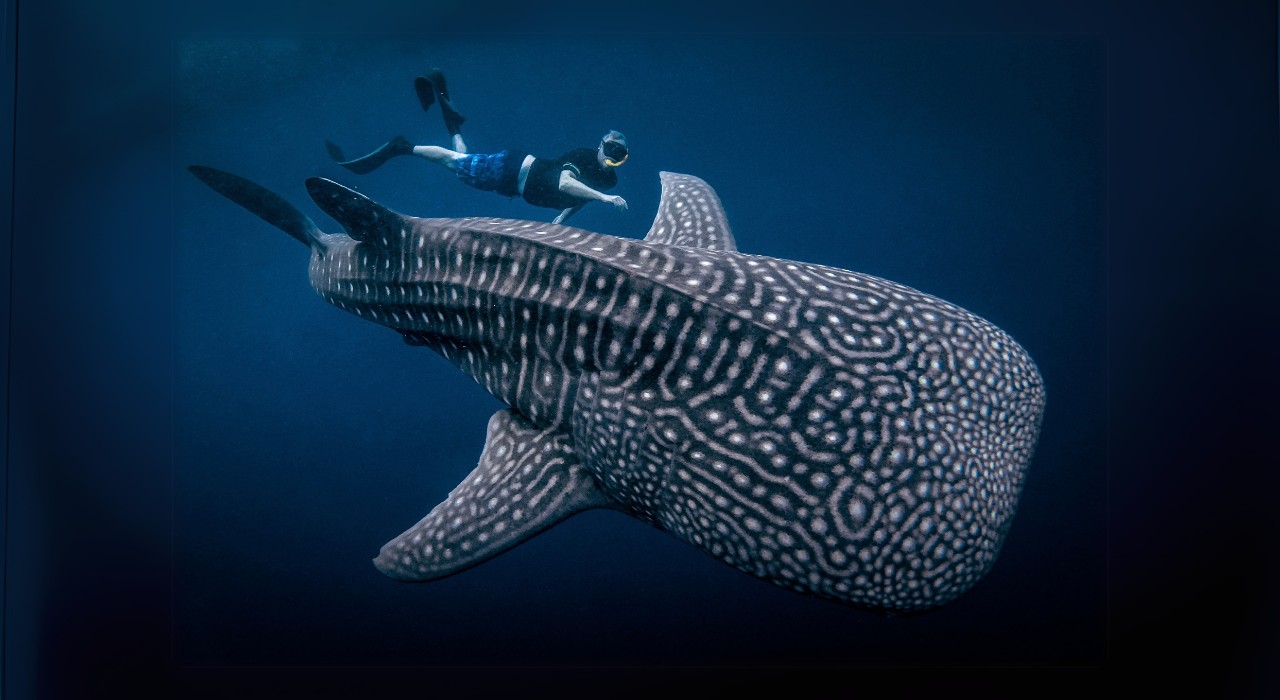I still remember the first time I saw a whale shark in the wild. It wasn’t in a glossy magazine or a viral video — it was in Saleh Bay, Sumbawa. Towering, calm, and majestic, the gentle giant swam effortlessly past our boat as the sun filtered through the clear waters. That single moment did more than just take my breath away — it shifted my entire perspective about the ocean and the delicate balance of life within it.
The truth is, when we travel with intention — especially to natural wonders like Sumbawa’s marine ecosystems — we don’t just gain memories. We also become part of something bigger. A single trip can ignite a passion for marine life, support local conservation, and help raise awareness for protecting endangered species like the whale shark.
And if you’re planning a once-in-a-lifetime experience like whale shark swimming Sumbawa, you may be doing more for the planet than you realize.
The Ripple Effect of Responsible Travel
Before this journey, I had no idea how tourism — when done right — could help sustain ocean life. Most people think about beach holidays, snorkeling tours, and maybe the perfect Instagram photo. But visiting places like Saleh Bay with a genuine respect for nature actually plays a crucial role in education, protection, and awareness.
When tourists come to experience marine life firsthand, it fuels the need for preservation. Local tour operators, especially those who focus on ethical marine experiences, become the bridge between the traveler and the conservation movement.
And it starts with that moment — the second you lock eyes with a whale shark, glide next to a sea turtle, or watch schools of fish dance beneath the surface. It’s no longer a documentary. It’s your story now.
From Curiosity to Compassion
What struck me most after my trip wasn’t just the excitement of being in the water with these giants. It was the shift in mindset that happened after I got back home.
I found myself reading articles on whale shark migration, watching coral reef restoration videos, and even sharing my trip with friends — not as a brag, but as an eye-opener.
That’s the beauty of it. An adventure like this creates marine awareness almost unintentionally. You come for the experience, but you leave with a deep appreciation for the ocean and its fragile ecosystems.
Your Visit Supports Local Communities, Too
What many don’t realize is that trips to places like Saleh Bay are directly linked to the well-being of local communities. From boat captains to conservation guides and even traditional fishermen, your presence brings real income to people who rely on the ocean — not by exploiting it, but by protecting it.
This kind of ecotourism model helps shift economic dependence from extractive industries (like overfishing) to sustainable, conservation-driven livelihoods.
Instead of taking from the sea, locals are empowered to protect it — because it becomes their asset, their pride, and their future. It’s a beautiful symbiosis.
Learning Through Experience
I’ve read tons of blogs and seen endless videos about marine conservation, but nothing comes close to learning in the field.
During our two-day trip in Sumbawa, our guide explained how whale sharks feed, migrate, and why Saleh Bay has become a hotspot for these beautiful creatures. He talked about plankton blooms, fishing practices, and the importance of regulating tourist behavior in the area.
Honestly, I had never paid much attention to things like coral reef degradation or plastic waste — until I saw pieces of plastic floating near a feeding whale shark.
That moment alone made me rethink my own habits back home. I started noticing how much single-use plastic I used, and I couldn’t ignore it anymore. It’s funny how a whale shark — with its silent grace — can teach you more than any lecture ever could.
Your Photos Tell a Story That Matters
We live in a digital age where sharing is second nature. And that’s not a bad thing — not when it’s used for something meaningful.
When you post your underwater photos, write about your marine experience, or simply tag your location in a protected area, you’re helping others see the importance of ocean life. Even a simple caption like “swimming with whale sharks in Sumbawa” can spark curiosity.
Suddenly, your friends are asking, “Where is that?” “Can anyone go?” “Are they dangerous?” And just like that, you’ve started a conversation that raises awareness.
Every post becomes a ripple.
Connecting Deeper with the Ocean
I didn’t expect this trip to change me, but it did. Something about being so close to wild marine life, untouched by mass tourism, awakens a different kind of respect.
You start to feel like a guest in someone else’s home. The ocean isn’t yours to conquer — it’s a living, breathing world that allows you to visit for a while.
This mindset is what separates eco-conscious travel from mass tourism. It’s not about ticking off a bucket list. It’s about understanding your impact and making sure it’s a positive one.
From One Trip to a Movement
I truly believe that travel can be a catalyst. When more people experience the magic of marine life, they carry that experience with them. Some might become advocates. Others may donate to conservation programs. Some, like me, simply start with small lifestyle changes that ripple outward.
And those ripples matter.
The ocean doesn’t need a million perfect people — it needs millions of travelers willing to care, learn, and share. That’s how awareness spreads. That’s how the tide turns.
